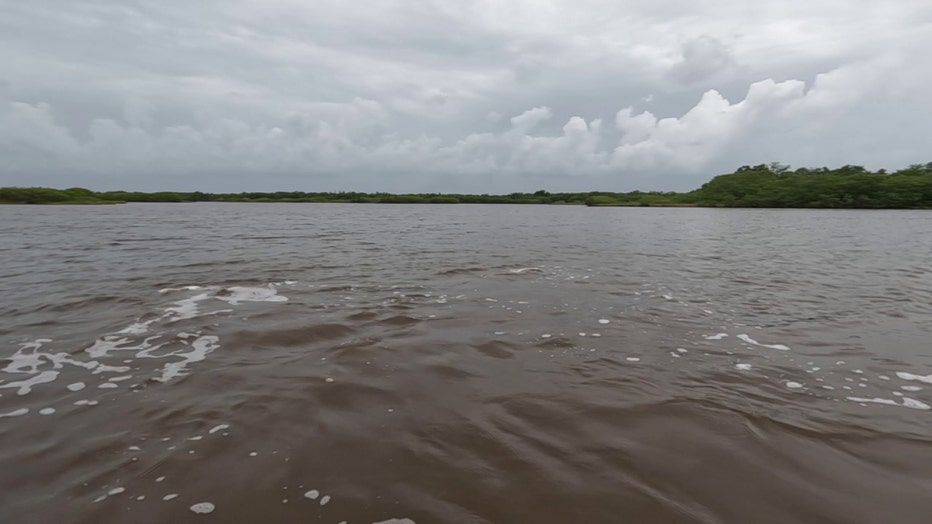Scientists planting seagrass hope slow down Florida's alarming loss
TAMPA, Fla. - Seagrass is a main focus for marine biologist Nikki Jackson of Aquatech in Tampa, and the news hasn't been good.
"We have lost a lot of seagrass in our marine ecosystems here in the state of Florida," said Jackson.
Some of the plants will end up at Rock Ponds Preserve, more than 1,000 acres on the Hillsborough/Manatee County line.

RELATED: New reports show that seagrass is on the decline in Tampa Bay and Sarasota Bay
It's former farmland that was acquired by the Southwest Florida Water Management District and transformed into a kind of living environmental laboratory.
Last April, Aquatech began planting the small sprigs of seagrass on the sandy bottom along the mangrove shorelines of the preserve. They hope to do it well enough to slow down Florida's disturbing loss of seagrass.
"They lost 6,000 acres in Tampa Bay alone," said Tom Ries of Ecosphere Restoration Institute. "And worse than that is Florida's East Coast. The Indian River Lagoon over the last 10 years lost 40,000 acres."
Ries has been designing environmental restorations in Florida for decades and curbing the loss of seagrass may be his biggest challenge yet.

READ: Local scientists work to combat seagrass loss after 4,000 acres killed off in Tampa Bay
Officials began feeding manatees in the Indian River Lagoon, fearing they would starve because so much seagrass has been lost. Scientists say it's because of declining water quality due to pollution and overdevelopment.
Now, the state is funding studies like the one at Rock Ponds to see if growing and planting seagrass can work on a large scale. Just a few months into the project at Rock Ponds, early results charted by the University of South Florida, look promising.
Scientists admit, though, it's early data and collected in a controlled environment, but it's a start, but growing a crop that's always occurred naturally is challenging.
"Environmental conditions can change the success of your plants very quickly," says Brennan Wehrhahn, a marine ecologist with Aquatech. They know their work is important.
"Without seagrass we lose out on a lot," said Jackson.


